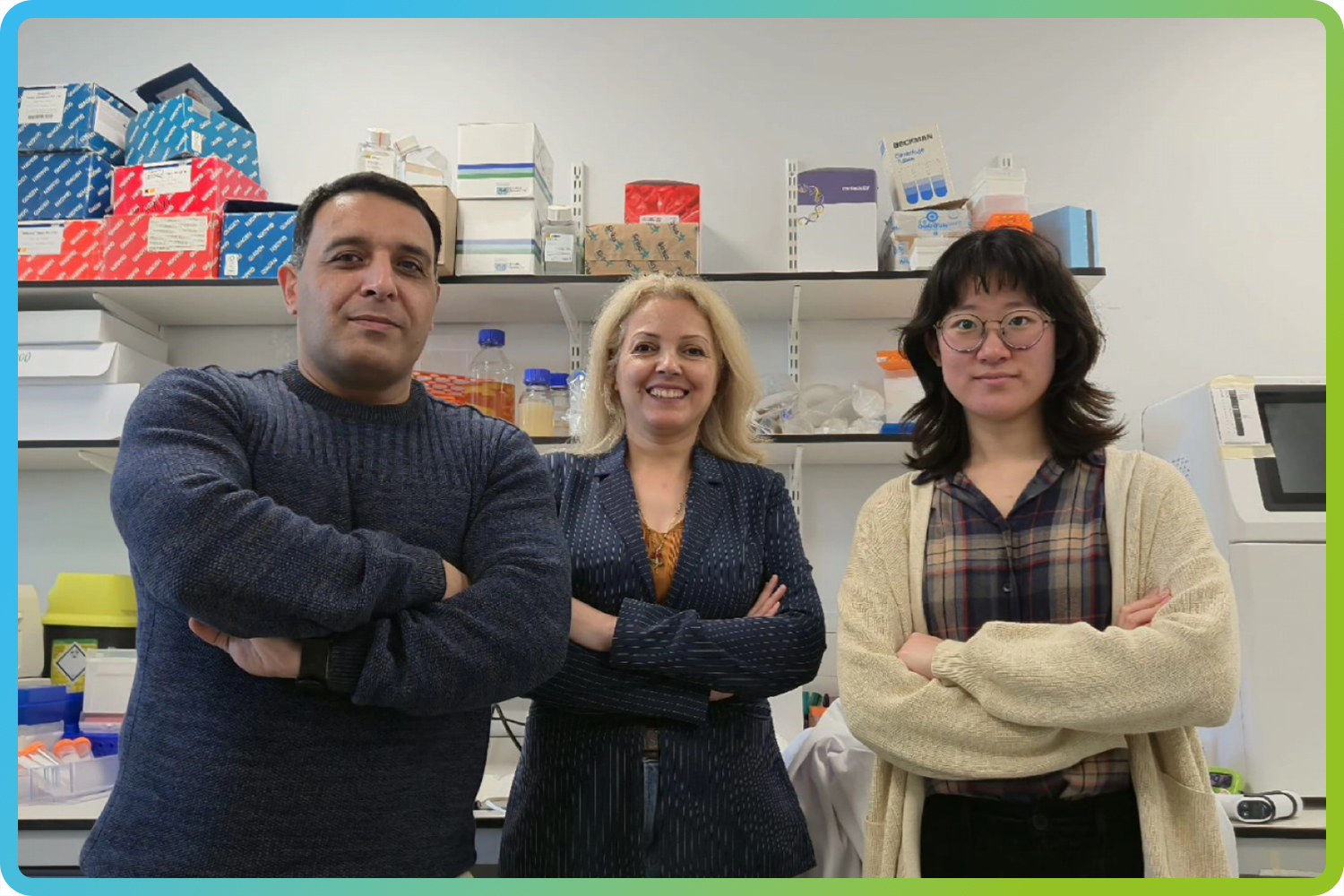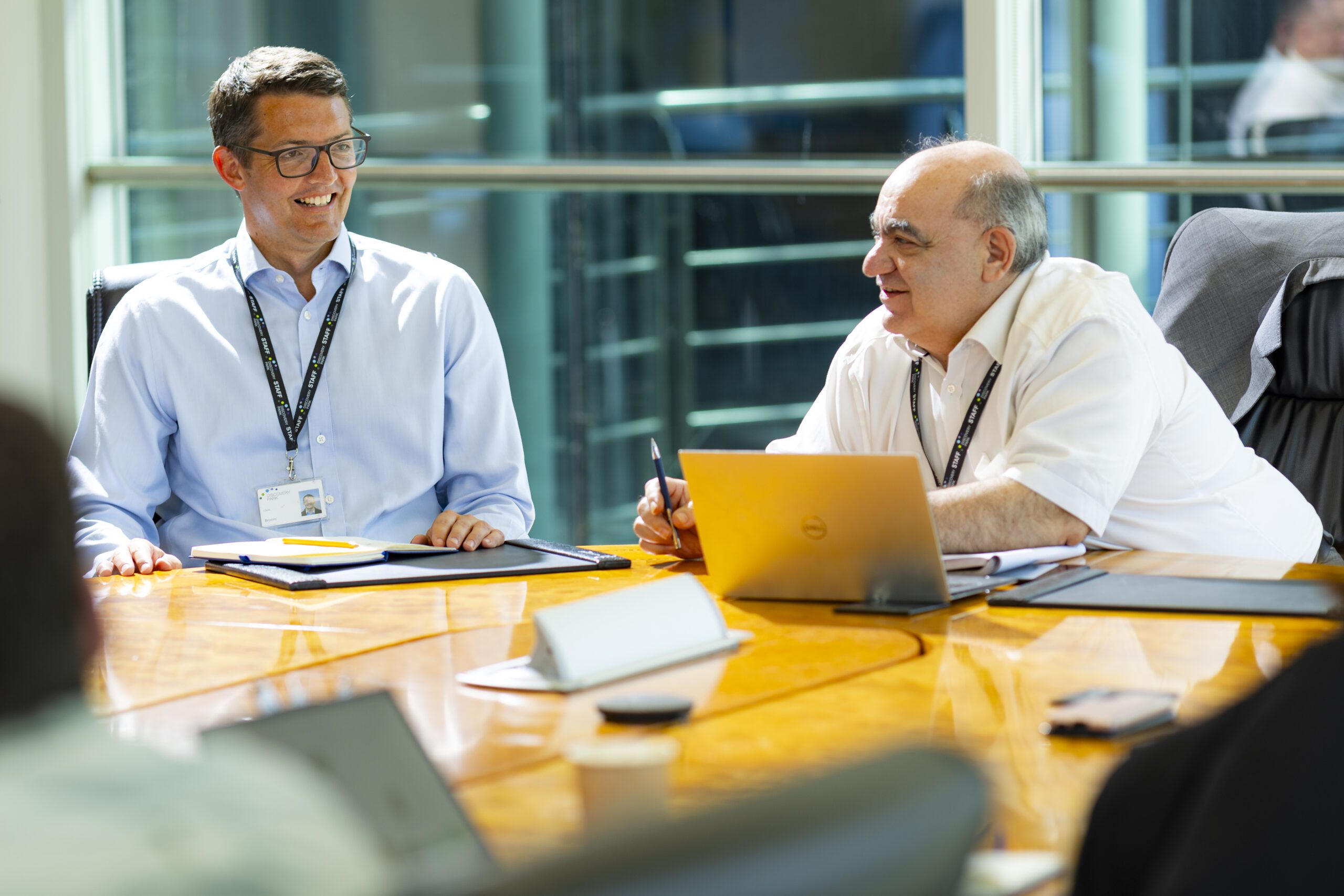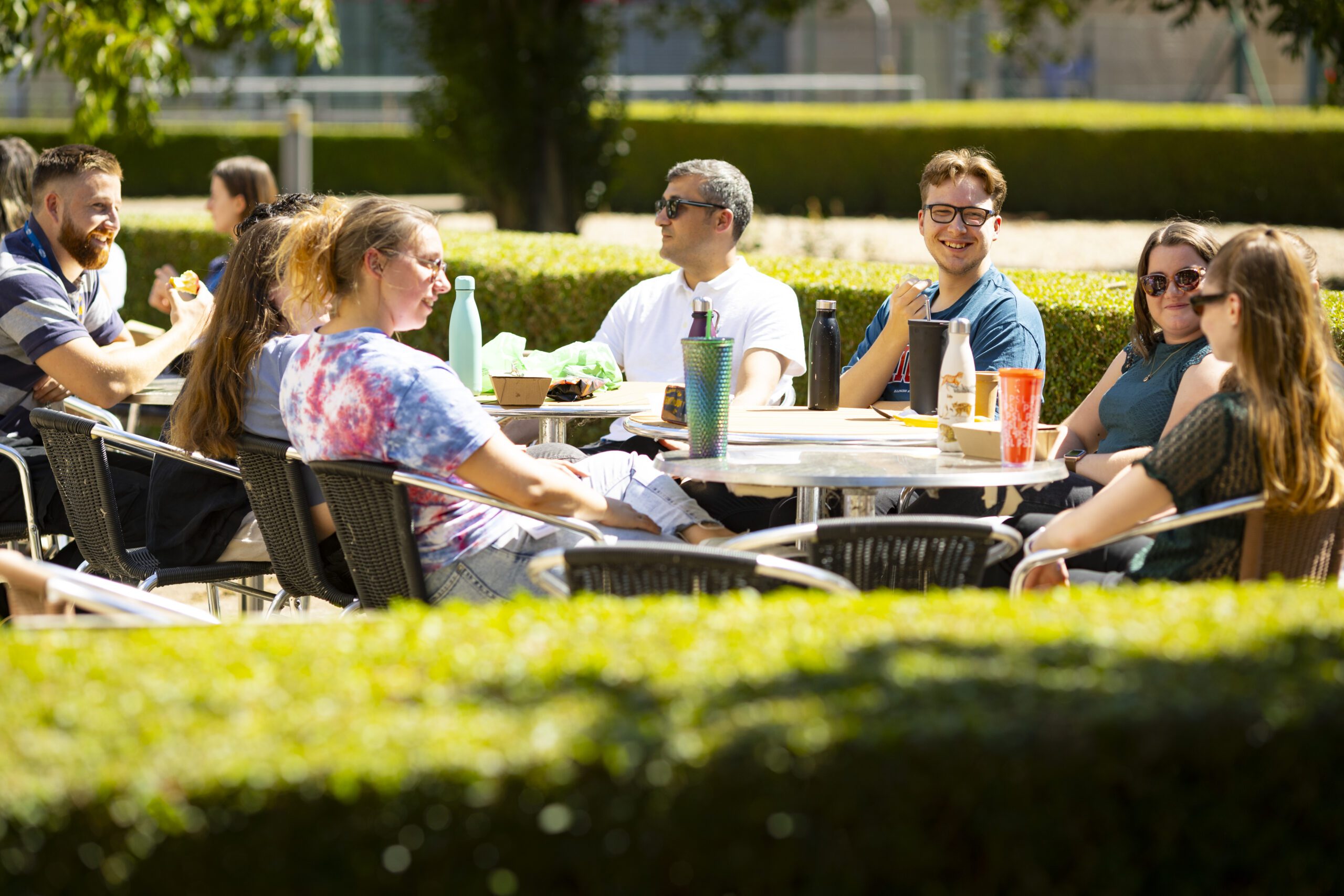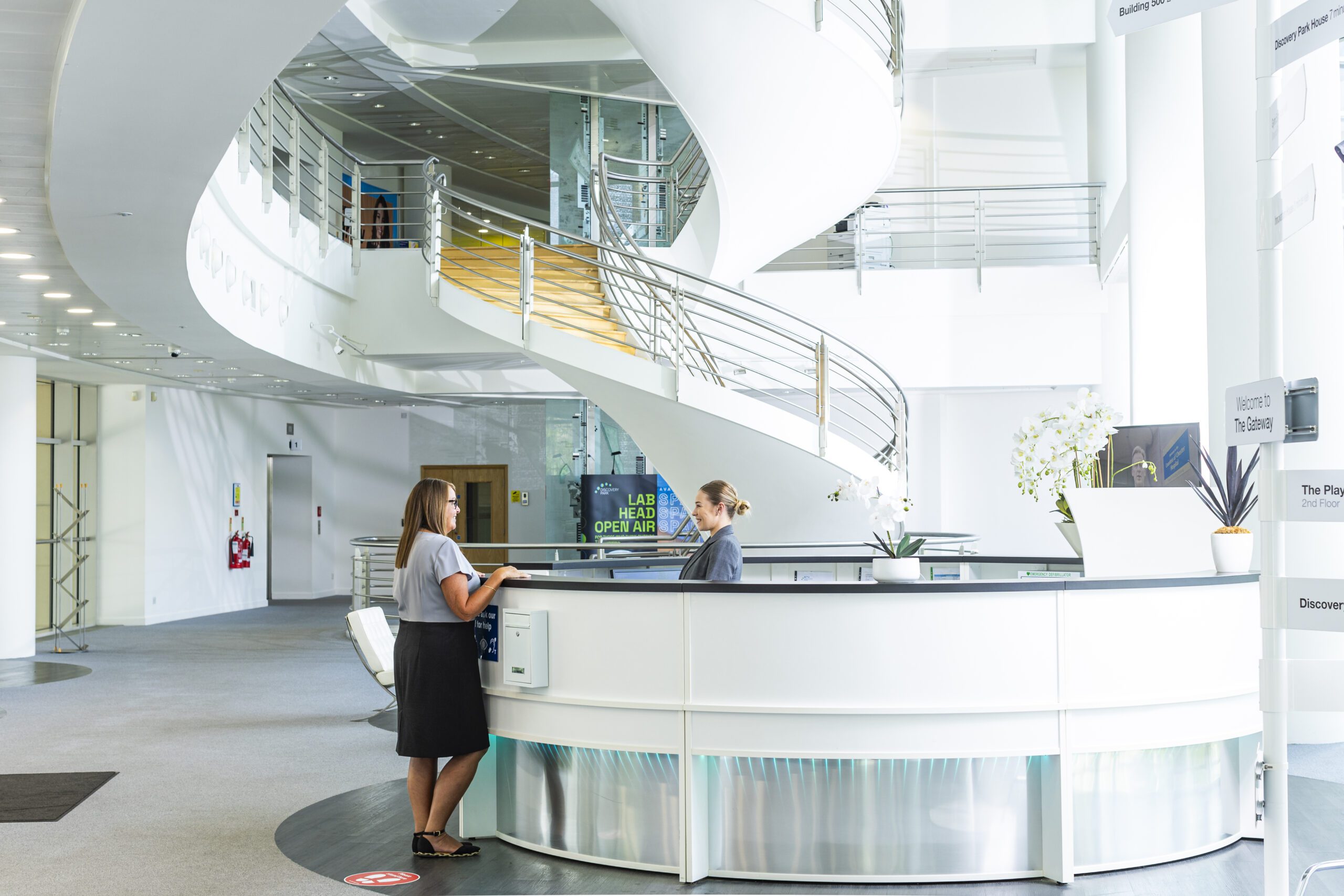Case Study: RS & RS Scientific
RS & RS Scientific are working in cancer therapy innovation, offering scientific expertise and collaborative support to translate discoveries into patient impact.
RS & RS Scientific is a pioneering early-stage biotech on a mission to reprogramme cancer. Focused on small cell lung cancer, the company is unlocking the potential of precision gene therapy to target tumours at their source.
Founded in 2022 and based at Discovery Park since 2024, the company was started by two co-founders with complementary scientific backgrounds – Dr Roghaiyeh (Rugi) Safari and Dr Reza Salimi.
Since then, the team has grown to add two molecular biology scientists, as well as regulatory and business development advisors. The team is still small but growing strategically, with a focus on excellence and multidisciplinary thinking.
Inside the innovation
The two RS & RS co-founders Rugi and Reza met during their PhDs. They came from different disciplines but shared the same frustration: so many scientific breakthroughs never reached the patients they were meant to help. When Rugi’s mother was diagnosed with cancer, the duo decided to take action and formed RS & RS Scientific to bring promising gene therapy innovations out of the lab and into real-world applications.
RS & RS uses gene editing technology and nanoparticles to target key genes within cancer tumours, with the aim of enhancing the efficiency of cancer treatments. They are developing an inhalable gene editing therapy which could make tumours more receptive to immune cell infiltration and treatment, exploring potential collaboration with fellow Discovery Park tenant – Inhalytic. This therapy would directly deliver treatments to the lungs, minimising systemic side effects and enabling home-based administration.

“Our mission is to reprogramme cancer – literally. We aim to develop targeted gene therapies that overcome drug resistance and reshape the tumour microenvironment, offering more effective treatment for lung cancer patients. We are committed to making advanced therapies not only scientifically powerful, but also scalable, safe and accessible.”
The benefits of locating at Discovery Park
RS & RS were one of the first tenants in CoLab, Discovery Park’s collaborative co-working lab space. At the time, the founders were living in London with a base in Belgium. They were attracted to come to Discovery Park to allow proximity to both Europe and London.
After they joined CoLab, RS & RS were introduced to Discovery Park Ventures, the park’s investment arm, who went on to invest in RS & RS Scientific. The company also joined Discovery Spark, the park’s flagship growth programme for early-stage life science startups. Rugi described the programme as “transformative, equipping me with the skills, insights and connections needed to advance my business.”
Since initially joining CoLab, RS & RS have since grown and expanded into their own lab space. Discovery Park offered a balance of scientific infrastructure and startup-friendly environment, with lab space, mentorship, and proximity to other innovators who shared the company’s solution driven focus, allowing the startup to go further and accelerate their growth.

“Discovery Park has given us far more than facilities and lab space. The community here is collaborative, and we’ve made valuable connections from scientific consultants to business mentors and even potential partners in delivery device development. We’ve also benefitted from workshops, pitch coaching, and opportunities to share our story with wider networks of investors and innovators. The Discovery Park ecosystem has given us the credibility, network and momentum to accelerate towards our next phase of development.”
Future growth plans
A major milestone for RS & RS was successfully developing their first functional gene constructs and demonstrating early proof-of-concept in resistant lung cancer cell lines. RS & RS also secured an Innovate UK grant, validating their approach and giving the founders the resources to move forward with confidence. Rugi and Reza have built international partnerships with scientists and experts around the world, laying the groundwork for a collaborative platform.
Looking to the future, the organisation’s next major step is in vivo validation of their gene therapy constructs in lung cancer models. Alongside this, they are focused on refining delivery systems and preparing for discussions with regulators to ensure a smooth path toward clinical translation, making key steps towards getting their solution into the hands of patients.





